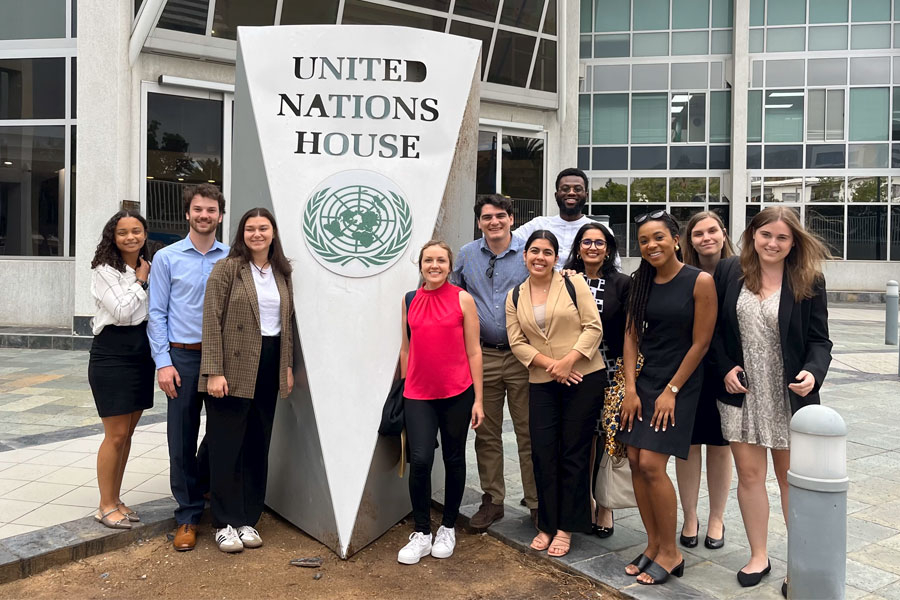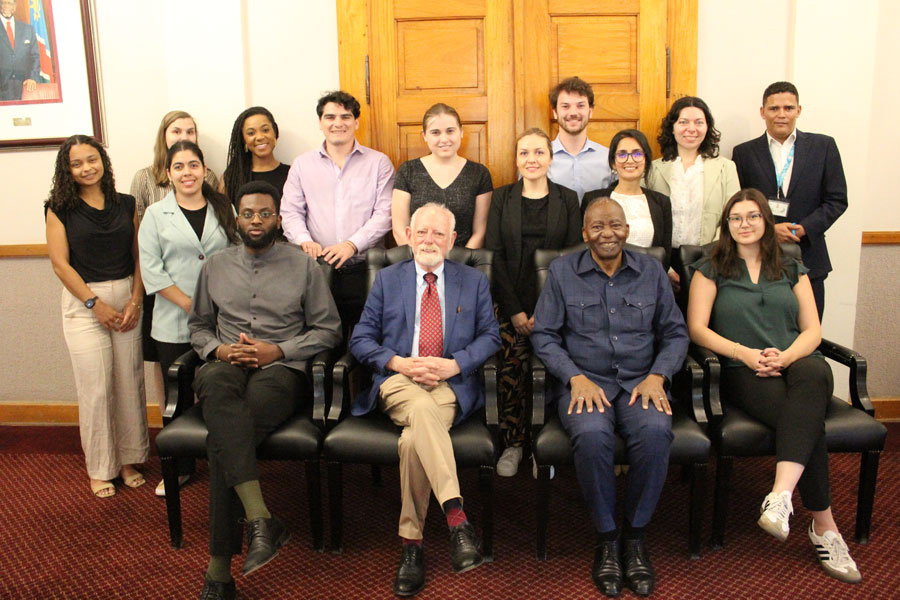In Namibia Trip, Students Gain New Perspectives on Restorative Justice

From January 13-20, 2024, 12 Johns Hopkins SAIS students and one faculty member travelled to Namibia as part of the school’s International Human Rights Law Clinic. This long-standing experiential learning course is a practicum designed to provide hands-on experience in legal mechanisms for the promotion and protection of internationally guaranteed human rights.
With different destinations and topics each year, this year’s focus on Namibia studies the question of what, if anything, international law has to say about restorative justice.“Two ethnic groups in what is now Namibia were the victims of a genocide perpetrated during the first decade of the 20th century, when Germany was the colonial power over the territory,” said Steven Schneebaum, lawyer, adjunct lecturer of international law, and faculty leader of the International Human Rights Law Clinic. “In recent times, the Namibian and German governments have attempted to arrive at a mutually satisfactory way of providing restorative justice, but the solutions proposed so far have not received the support of descendants of the victimized groups. We are studying this situation and hope to understand not only what has happened and is happening in Namibia, but to draw some lessons that may be applicable elsewhere.”
During this trip, students met with Peter Katjavivi, the Speaker of Namibia’s National Assembly, U.S. Ambassador Randy Berry, German Ambassador Thorsten Hutter, as well as the heads of two German civil society organizations (the Goethe Institut, and the Konrad-Adenauer-Stiftung), and an indigenous nongovernmental organization, the Namibian Institute for Democracy.

The group also conferred with two professors at the University of Namibia, two German-Namibians who have resided in the country for decades, the paramount chief of the Ovaherero People, and several spokespeople for Namibian ethnic communities, including the two most affected by the genocide.
“Our fieldwork in Namibia was an invaluable experience,” said Arpitha Peteru, a student in the Master of International Public Policy degree program. “Trust-building played a crucial role, given the weight of the atrocities involved in our case study, and our presence in Namibia went a long way in helping us build this trust. Our time there enabled us to show up as good-faith students willing to invest our time, energy, and resources to listen, bear witness to testimony, and do our best to understand the details of this context that has gone relatively understudied and under-examined.”
With the fact-finding mission concluded, students will work throughout the spring semester to prepare and jointly present their findings in a published work.
Enjoyed reading In Namibia Trip, Students Gain New Perspectives on Restorative Justice? Learn more about what Washington DC campus has to offer.
Back to Beyond the Classroom Stories